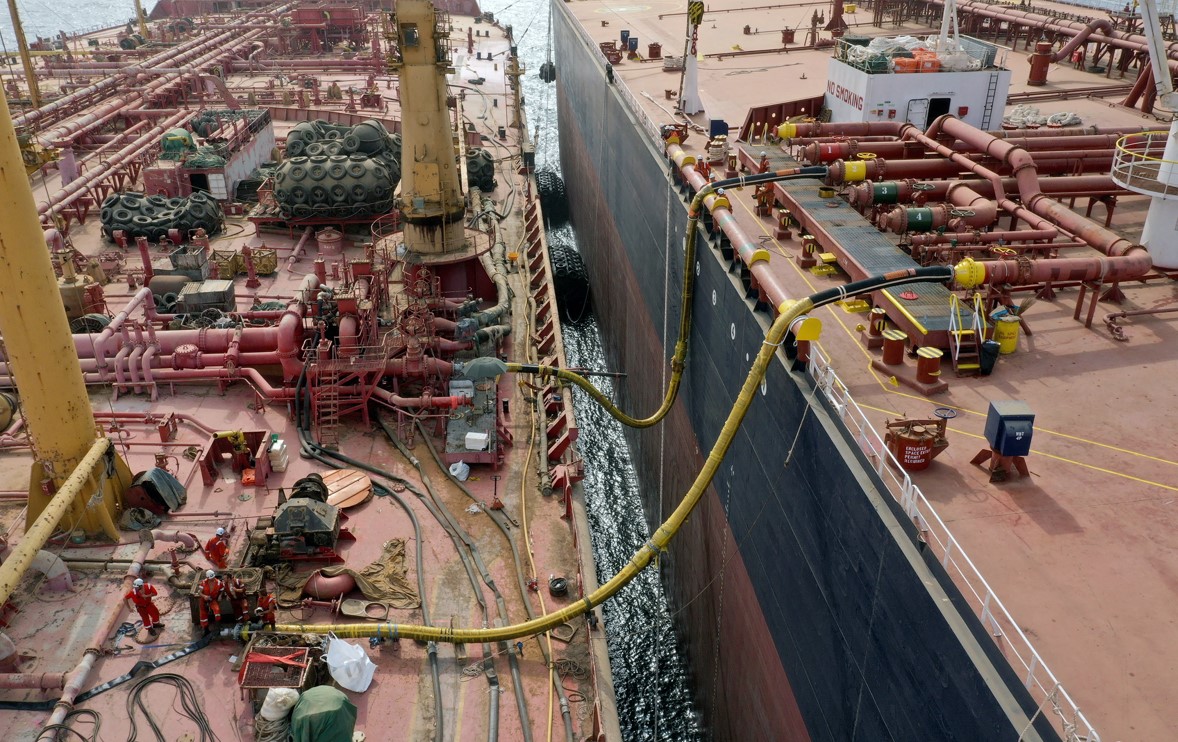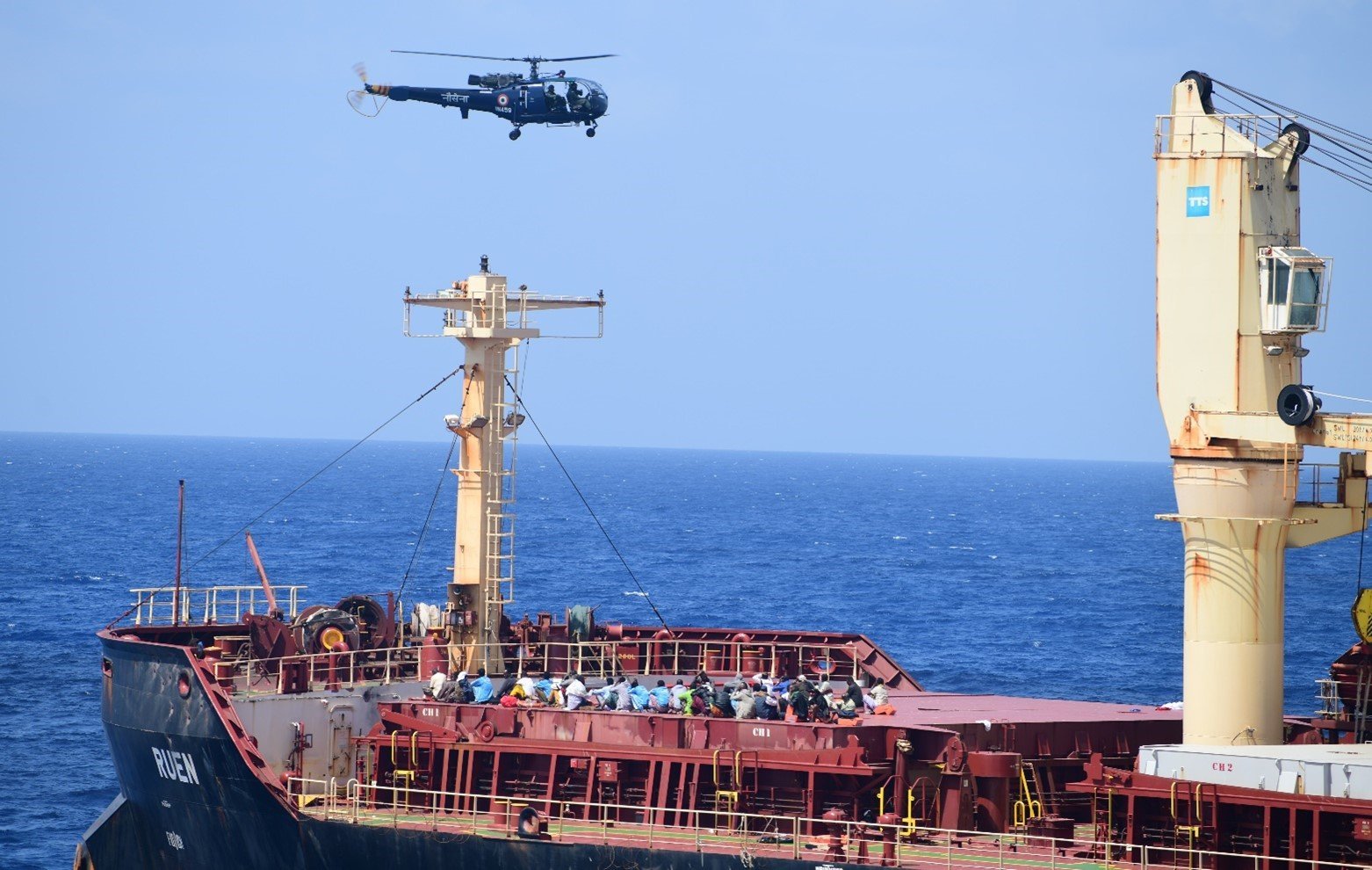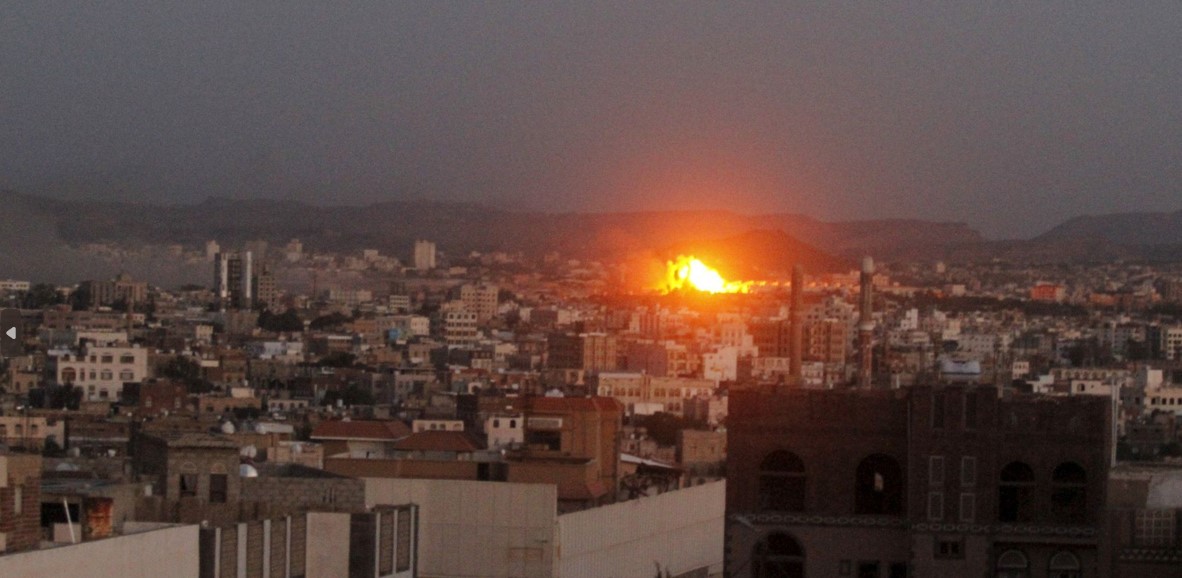Suez Canal traffic drops 42 per cent following Huthi attacks - UN

By Agency |
The number of weekly container ship transits through the Suez has fallen by 67 per cent year-on-year
The volume of commercial traffic passing through the Suez Canal has fallen more than 40 per cent in the last two months after attacks by Yemen's Huthi rebels, according to the United Nations, raising concerns for global trade.
The Huthis say they are targeting what they consider Israeli-linked commercial and military shipping in the region in solidarity with Palestinians in Gaza, pushing some cargo carriers to take longer and more expensive routes to avoid attack.
Keep reading
- The toll and toil it took to cleave the Suez Canal through the Egyptian desert
- With world distracted by conflicts elsewhere, Syrian civil war flares up again
- Tough times loom as Red Sea attacks slash shipping volume by 70 per cent in Q3
- Houthi attacks reduce shipping on Africa's key trade route by 57%
"We are very concerned that the attacks on Red Sea shipping are adding tensions to global trade, exacerbating (existing) trade disruptions due to geopolitics and climate change," UN Conference on Trade and Development (UNCTAD) head Jan Hoffman told reporters Thursday.
According to the UNCTAD, ships diverting from the Red Sea -- sailing instead around South Africa's Cape of Good Hope -- has led to a 42 per cent drop in transit through the Suez Canal in the last two months.
The Suez Canal, in Egypt, connects the Mediterranean Sea with the Red Sea.
More than 80 per cent of the volume of international goods trade is done via sea, Hoffman said.
"Maritime transport is really the lifeline of global trade," he said.
The number of weekly container ship transits through the Suez has fallen by 67 per cent year-on-year, according to the UNCTAD, as more than 20 per cent of the world's container trade goes through the Suez Canal.
"Given that it's above all the larger container ships that divert from the Suez Canal, the decline in container carrying capacity is even bigger," Hoffman said.
Tanker traffic has dropped 18 per cent, the transit of bulk cargo ships carrying grain and coal is down six per cent and gas transport is at a standstill.
Overall, between 12 and 15 per cent of world trade -- 20,000 ships per year -- passes through the Red Sea, providing a link between Europe and Asia.
The situation is made even more dire as other global maritime trade routes also face disruption, with transit through the Black Sea severely restricted since Russia's invasion of Ukraine two years ago, sending global food prices soaring.
The drought in Central America has led to a drop in water levels in the Panama Canal, significantly reducing the amount of traffic able to cross the essential route.
"Prolonged disruptions in major trade routes would disrupt global supply chains, leading to delayed deliveries of goods, increased costs and potential inflation," the UNCTAD warned.
Story by AFP
Reader comments
Follow Us and Stay Connected!
We'd love for you to join our community and stay updated with our latest stories and updates. Follow us on our social media channels and be part of the conversation!
Let's stay connected and keep the dialogue going!
















